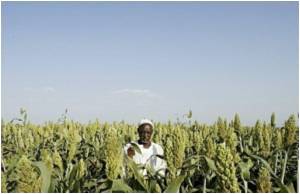Constant clashes between militants and the army in the Philippines has cost thousands of lives and worsened the socio-economic conditions of the country.

Two months ago, the farmer’s marshland village of Tukanalipao near the township of Mamasapano was the site of a day-long battle between Muslim militants and police that left more than 60 people dead as security forces hunted down alleged top terrorists. The latest carnage has seriously jeopardized efforts to end a four-decade Muslim separatist rebellion which has claimed 120,000 lives, dimming hopes again that people such as Pangaoilan will be able to prosper in peace.
The nation’s biggest rebel group, the Moro Islamic Liberation Front (MILF), signed a pact last year agreeing to give up its struggle in return for an autonomous homeland in the impoverished southern region of Mindanao. But the January 25 battle in Pangaoilan’s village, in which 44 police commandos, 17 rebels and at least three civilians died, triggered a huge political backlash that threatens the passage of a proposed national law endorsing the autonomous region.
Deep Poverty
The new region would take in large parts of Mindanao, which the nation’s Muslim minority of roughly five million people regard as their ancestral homeland, including Pangaoilan’s village. Despite fertile farming lands, vast mineral resources and idyllic beaches ripe for tourism, the region is the poorest in the country with nearly half of the population living in poverty, according to government data.
Tukanalipao, with no electricity or running water, is a typically impoverished Muslim community in Mindanao. Its 1,600 residents live in palm thatch houses on wooden stilts, with corn and rice farming their only source of regular income.
Advertisement
In a typical cycle of violence and poverty that builds resentment, a military offensive launched after the January battle against a small breakaway rebel group opposed to the peace process displaced 120,000 people. Two displacement camps with tarpaulin tents lie on a road close to Tukanalipao, although the military last week declared the offensive over and hopes the displaced people will soon return home.
Advertisement
Building Peace
As part of its efforts to promote the peace process, President Benigno Aquino’s administration has increased annual infrastructure spending on the region from 8 billion pesos ($179 million) in 2010 to 24 billion pesos this year.
In Tukanalipao, a sore lack of infrastructure is symbolized by a rickety patchwork of logs that its residents use to cross a stream and get to their farmlands. When the stream overflows during the rainy season, work stops as farmers can not get their animals across because the improvised bridge might fall apart, according to Pangaoilan.
This week the government broke ground on a concrete and steel bridge to replace the wooden structure. "Tukanalipao has become a ’representation’ of the Muslim region," said Budget Secretary Florencio Abad as he guided journalists through the area to witness the inauguration. "Our presence here today and these symbolic projects are meant to deliver a message that poverty is the root cause of conflict and that we are sincere in pursuing peace," Abad said as he stood alongside supportive MILF leaders.
The symbolic impact was deepened by building the new bridge in the same area as the deadly battle two months ago, showing the government and the MILF remained partners in peace even in the most volatile of areas. "One of the requirements of building peace is development, we need development," MILF army spokesman Von Al Haq said in a speech at the inauguration ceremony.
But without a final peace pact, infrastructure spending appears destined to offer only small band aid solutions. "Without a political settlement, these socio-economic projects are just part of counter-insurgency," said MILF chief peace negotiator Mohagher Iqbal.
Source-AFP










